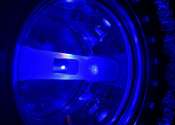Superradiant atoms could push the boundaries of how precisely time can be measured
Superradiant atoms can help us measure time more precisely than ever. In a recent study, researchers from the University of Copenhagen present a new method for measuring the time interval, the second, mitigating some of the ...









